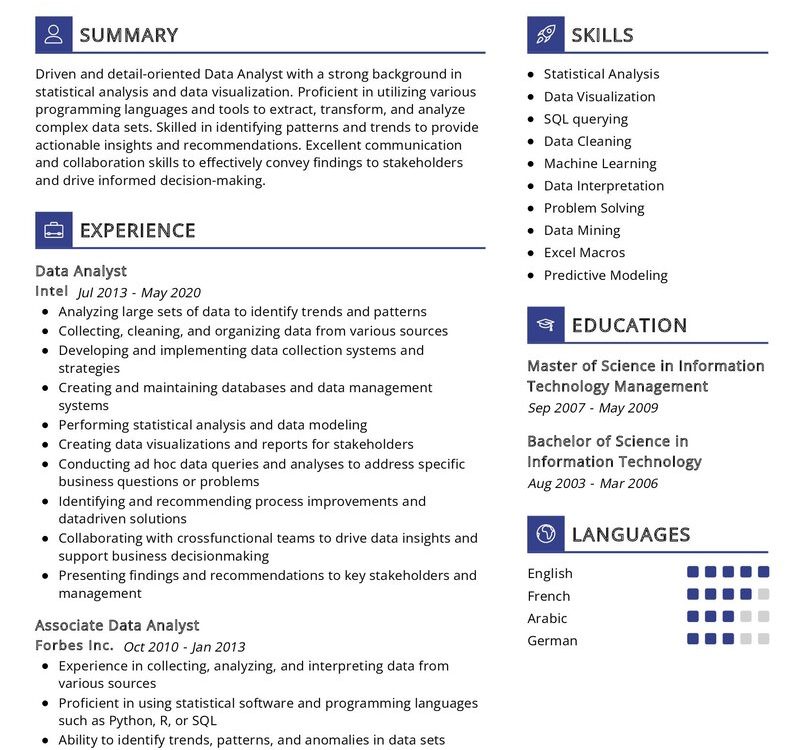Exploring the Role of a Data Analyst
In today’s data-driven world, the role of a Data Analyst has emerged as a critical one in numerous industries. Data Analysts are entrusted with the task of transforming raw data into actionable insights, driving key business decisions and strategies. Let’s delve deeper into the multifaceted role of a Data Analyst, understanding the skills required, responsibilities entailed, and the path to becoming a proficient Data Analyst.
Understanding Data Analyst Job Requirements
Embarking on a career as a Data Analyst requires a combination of analytical prowess, technical skills, and a keen eye for detail. Here are the essential prerequisites one needs to fulfill to excel in this role:
- A degree in a relevant field such as Statistics, Mathematics, Computer Science, or Economics, providing a solid foundation in data analysis techniques.
- Proficiency in programming languages like Python, R, SQL, or tools like Excel and Tableau, essential for data manipulation, analysis, and visualization.
- Analytical thinking and problem-solving skills, enabling the interpretation of complex data sets to derive meaningful insights.
- Attention to detail and accuracy, crucial for ensuring the quality and reliability of analysis outcomes.
- Effective communication skills to convey findings and insights to stakeholders in a clear and understandable manner.
- Ability to work collaboratively in a team environment, often liaising with other departments to gather data and understand business requirements.
Continuously honing these skills through practical experience and ongoing learning is essential for staying abreast of evolving industry trends and technologies.
Responsibilities of a Data Analyst
The role of a Data Analyst is dynamic, encompassing various responsibilities aimed at leveraging data to drive organizational success. Here are some key responsibilities typically associated with this role:
- Collecting, processing, and analyzing large datasets to identify trends, patterns, and insights relevant to business objectives.
- Developing and maintaining data models, dashboards, and reports to facilitate data-driven decision-making across departments.
- Conducting ad hoc analysis and research to address specific business questions or challenges.
- Collaborating with cross-functional teams to define key performance indicators (KPIs) and establish data collection methodologies.
- Providing recommendations based on data analysis to optimize processes, improve efficiency, and enhance business performance.
- Monitoring data quality and integrity, identifying and resolving discrepancies or anomalies as they arise.
By fulfilling these responsibilities effectively, Data Analysts play a crucial role in driving strategic initiatives and contributing to the overall growth and success of an organization.
Crafting a Data Analyst Resume
When crafting a resume for a Data Analyst position, it’s essential to highlight your relevant skills, experience, and achievements in a clear and concise manner. Here are some tips to help you create a compelling resume:
- Begin with a strong summary or objective statement that highlights your expertise and career aspirations as a Data Analyst.
- Detail your educational background, including degrees, certifications, and relevant coursework that showcase your proficiency in data analysis.
- Highlight your technical skills, specifying programming languages, software tools, and data analysis techniques you are proficient in.
- Showcase your professional experience, emphasizing your contributions to data-driven projects, successful outcomes, and any notable achievements.
- Quantify your accomplishments wherever possible, using metrics and statistics to demonstrate the impact of your work.
- Include any relevant internships, projects, or extracurricular activities that demonstrate your passion for data analysis and your ability to apply theoretical knowledge in real-world scenarios.
By presenting your qualifications and experiences effectively, you can increase your chances of standing out to potential employers and securing interviews for Data Analyst positions.
Key Takeaways for Aspiring Data Analysts
Aspiring Data Analysts should focus on developing a strong foundation in analytical skills, technical expertise, and effective communication. Here are some key takeaways to guide you on your journey:
- Invest in your education and continuously upgrade your skills to stay competitive in the rapidly evolving field of data analysis.
- Seek opportunities to gain hands-on experience through internships, projects, or volunteer work to enhance your practical skills and industry knowledge.
- Network with professionals in the field, attend industry events, and participate in online forums or communities to stay connected and informed about industry trends and best practices.
- Develop a portfolio showcasing your data analysis projects, methodologies, and outcomes to demonstrate your proficiency and credibility to potential employers.
- Stay curious, adaptable, and open to learning new tools and techniques to remain agile in a dynamic and ever-changing data landscape.
By following these key takeaways and leveraging resources like ResumeKraft’s AI Resume Builder, resume design templates, and interview preparation guides, you can position yourself for success in your pursuit of a rewarding career as a Data Analyst.
Finally, feel free to utilize resources like AI Resume Builder, Resume Design, Resume Samples, Resume Examples, Resume Skills, Resume Help, Resume Synonyms, and Job Responsibilities to create a standout application and prepare for the Data Analyst job interview.


